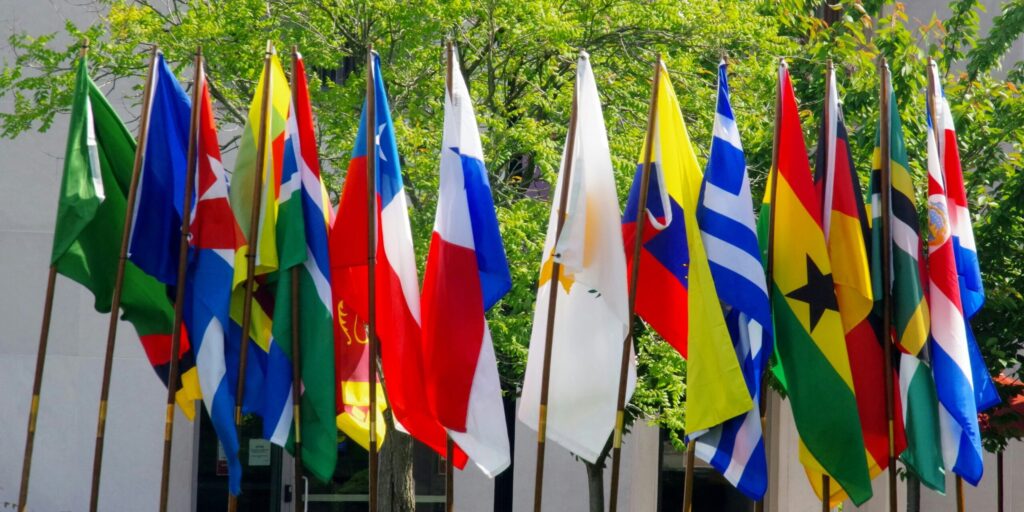A growing trend among U.S.-based academics reveals that more and more researchers are seeking stability abroad as funding for scientific research in the United States continues to decline. This shift comes amid cuts to key funding programs under the previous administration and a rising tide of anti-science rhetoric, which many scholars believe threatens their academic freedom and ability to conduct meaningful research. The result is a notable “brain drain” with experts in multiple fields now turning their attention to academic opportunities in countries with stronger support for research and innovation.
The U.S. Funding Crisis:
The United States has long been known for its robust funding systems for academic research, with grants from federal bodies like the National Institutes of Health (NIH), the National Science Foundation (NSF), and private organizations serving as the backbone of scientific discovery. However, a series of budget cuts, starting in the Trump administration and continuing into the Biden administration, has severely hampered the academic community. Federal funding for research has become increasingly unpredictable, with fewer grants being awarded each year and more bureaucratic hurdles for those seeking financial support.
This shift has led to an alarming trend: many U.S. researchers, particularly those in the early stages of their careers, are choosing to leave the country in search of more secure opportunities. Scholars in fields ranging from biomedical sciences to engineering have reported that they can no longer rely on U.S.-based funding to continue their research. The instability, coupled with tightening budgets and the erosion of public support for science, has left many feeling disillusioned.
The Exodus to Foreign Institutions:
Countries like France, Denmark, and Sweden, which have long invested in their academic sectors, are seeing an influx of U.S.-based researchers. Many of these nations offer competitive salaries, stable research environments, and well-funded programs that U.S. scholars are now finding increasingly rare in their own country. Sweden’s governmental research funding, for example, has been robust, offering researchers the freedom to pursue high-level projects without the constant worry of funding cuts. Similarly, France has long prioritized science and innovation, while Denmark’s investment in research has provided an inviting atmosphere for American scholars seeking stability.
Canada, with its more favorable immigration policies and strong commitment to research funding, has become another popular destination. This shift is particularly evident in the STEM fields, where cutting-edge research often requires sustained investment and commitment from government agencies and private partners alike. In these countries, researchers find more support, both financially and institutionally, allowing them to focus on their work without worrying about looming budget cuts or political interference.
Impact on the U.S. Research Community:
The trend of U.S. academics leaving the country has far-reaching consequences. First, it risks undermining the global standing of U.S. universities. For decades, U.S. institutions have been among the best in the world, attracting top talent from all corners of the globe. This talent has contributed to groundbreaking research and innovation, positioning the U.S. as a leader in fields such as medicine, technology, and engineering. However, as scholars leave for greener pastures abroad, the U.S. risks losing its competitive edge.
Furthermore, the departure of these researchers affects American students, who may find themselves at a disadvantage if their professors and mentors are leaving the country. Academic institutions could experience a decline in the quality of instruction and research opportunities available to students, especially at the graduate and post-doctoral levels.
Political and Public Perception:
The migration of scholars is not just a financial issue—it also highlights a growing divide between the scientific community and political leaders in the U.S. Over the past several years, there has been a marked increase in anti-science rhetoric, particularly regarding climate change, public health, and the value of scientific expertise. The Trump administration’s repeated attacks on the scientific community, from questioning the consensus on climate change to downplaying the severity of the COVID-19 pandemic, contributed to a sense of hostility and instability in the U.S. academic environment.
In response, many researchers have grown disillusioned with the political climate. They have expressed frustration not only with funding cuts but also with the broader lack of public support for science. The rise of populist movements in the U.S. has further polarized the discourse on science, creating a climate where experts feel increasingly marginalized and under attack.
Organizations Helping Scholars Move Abroad:
In response to this crisis, organizations like Scholars at Risk (SAR) have sprung into action. SAR works to assist scholars facing threats to their academic freedom, helping them find opportunities abroad in safe environments where they can continue their research. The organization’s network includes universities, research institutes, and other academic partners in countries that value the work of scientists and are willing to provide a stable and secure environment.
SAR’s work is crucial, particularly for those scholars who are politically persecuted or face harassment due to their work. The organization has played an important role in helping displaced academics find new homes and continue their vital research without the constant fear of repression or censorship.
Conclusion:
As the situation grows more dire, the U.S. risks losing not only its top academic talent but also its position as a global leader in research and innovation. The government must recognize the growing challenges faced by academics and work to rebuild trust with the scientific community. Investment in research and development must be prioritized, and policies that encourage intellectual freedom and support for science need to be restored. Without these steps, the U.S. could find itself increasingly isolated in the global research community.


